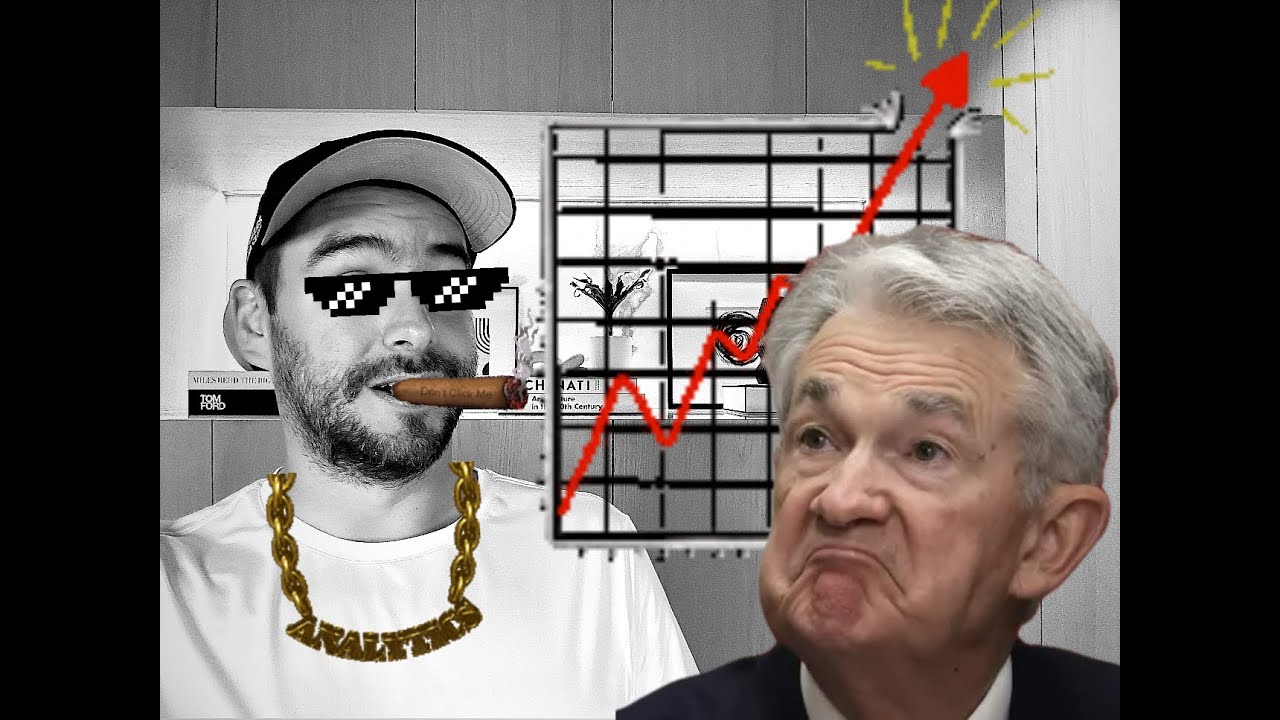Preparing for a financially secure future
Summary
TLDRThe speaker emphasizes the importance of financial literacy in the face of economic challenges such as crashing stock markets, rising interest rates, and inflation. They discuss the impact of these trends on affordability, consumer spending, and job security, highlighting the surge in layoffs across various sectors. The script urges individuals to prepare for economic downturns by understanding financial trends, managing expenses, and developing income-generating assets to secure their financial future.
Takeaways
- 📉 Stock markets are crashing, and interest rates are rising, making homes bought recently unaffordable.
- 💸 Prices for consumer goods, gas, milk, and travel have increased significantly, making everything more expensive.
- 🏠 Housing has become unaffordable, and refinancing at current rates is difficult for recent homebuyers.
- 🔄 Layoffs are happening across all sectors, including tech, media, and entertainment, due to high business costs.
- 📊 Inflation has reached its highest levels in decades, leading to increased interest rates and decreased consumer spending.
- 🛒 The Consumer Price Index has skyrocketed, reducing consumer confidence and spending power.
- 💳 Consumer debt has more than doubled over the last 20 years, especially for age groups 30 to 60.
- 💡 Financial education is crucial, and real education starts after school. People need to understand current economic trends.
- 📉 Recessions occur periodically, and it is essential to prepare for future economic downturns.
- 📈 Developing income-generating assets is vital for long-term financial security and managing liabilities.
Q & A
What is the main focus of the discussion in the transcript?
-The main focus of the discussion is financial literacy and understanding the importance of being prepared for economic uncertainties.
What are some of the current economic trends mentioned in the script?
-The script mentions crashing stock markets, rising interest rates, increased prices for consumer goods, unaffordability of housing, and layoffs across various sectors.
Why do companies resort to layoffs when facing high inflation and increased cost of business?
-Companies resort to layoffs to manage their expenses when their income is low and costs are high, as part of their strategy to maintain operations during economic downturns.
What does the speaker suggest is the real education for financial trends?
-The speaker suggests that real education for financial trends begins after leaving school and involves continuous learning and understanding of economic changes.
How does the speaker describe the typical income growth curve and its relation to expenses?
-The speaker describes the income growth curve as initially rising fast and then tapering off, while expenses continue to increase due to life events like marriage and having children.
What is the potential danger of not having a financial plan according to the transcript?
-The potential danger is that without a financial plan, individuals may find themselves unprepared for economic downturns, layoffs, or other financial shocks, leading to serious financial instability.
What is the importance of creating income-generating assets as mentioned in the script?
-Creating income-generating assets is crucial for long-term financial stability and provides a passive income stream that can support individuals beyond their working years.
Why does the speaker emphasize the need for financial education?
-The speaker emphasizes financial education because it empowers individuals to understand and navigate economic trends, make informed decisions, and prepare for financial uncertainties.
What are some of the checkpoints the speaker suggests for individuals to evaluate their financial health?
-The checkpoints include having emergency funds, a monthly budget, positive cash flow, life insurance, and a plan for paying off debt, owning a home, children's education, and retirement.
What is the connection between financial planning and peace of mind as discussed in the script?
-The connection is that financial planning helps individuals achieve financial security, which in turn provides peace of mind by reducing the stress and uncertainty associated with financial instability.
What does the speaker mean by 'sleeping on a financial railway track'?
-The phrase 'sleeping on a financial railway track' is a metaphor for being unaware or unprepared for the potential financial dangers that could arise from not managing one's finances properly.
Outlines

Cette section est réservée aux utilisateurs payants. Améliorez votre compte pour accéder à cette section.
Améliorer maintenantMindmap

Cette section est réservée aux utilisateurs payants. Améliorez votre compte pour accéder à cette section.
Améliorer maintenantKeywords

Cette section est réservée aux utilisateurs payants. Améliorez votre compte pour accéder à cette section.
Améliorer maintenantHighlights

Cette section est réservée aux utilisateurs payants. Améliorez votre compte pour accéder à cette section.
Améliorer maintenantTranscripts

Cette section est réservée aux utilisateurs payants. Améliorez votre compte pour accéder à cette section.
Améliorer maintenantVoir Plus de Vidéos Connexes

Mercado olha pacote chinês, IPCA, Petrobras e fiscal: Minuto Touro de Ouro

This Man Predicted EVERYTHING!! What Comes NEXT!?

How To QUICKLY Get Ahead Of The 99% (From $0 To $1,000,000)

BREAKING: Federal Reserve Cancels 2025 Rate Cuts - Massive Pivot Ahead!

DON'T BE FOOLED THE BUBBLES JUST KEEP GETTING BIGGER - DON'T LEND MONEY TO FRIENDS

¡Lo logramos! Aterrizaje suave confirmado 📈🛬📈
5.0 / 5 (0 votes)
